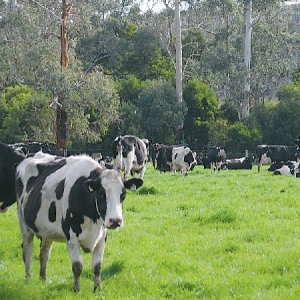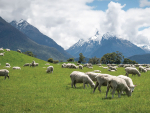WHILE HOT humid weather across the country has provided the perfect conditions for lush pasture cover this spring, farmers need to stay alert for an increased risk of facial eczema through summer.
Dairy and beef cattle, sheep, deer and goats are all susceptible to facial eczema which can damage the liver and cause inflammation of the bile ducts and an accumulation of certain compounds resulting in sensitivity to sunlight.
Ballance Agri-Nutrients animal nutrition product manager, Jackie Aveling, says even before physical signs appear, exposure to facial eczema can have a significant impact on animals particularly cows where it can result in an immediate drop in milk production.
Sub-clinical facial eczema is the result of exposure to the toxin sporidesmin, which grows in pasture. Spore counts increase where grass temperatures are above 12°C for three consecutive nights and can vary from farm to farm and even between paddocks.
Monitoring spore counts through summer and autumn through websites such as the AsureQuality spore count site, and having an early plan of attack for facial eczema in place will ensure the hard work being put into maintaining a healthy herd pays off in sustained production.
Zinc treatment during the season from late December to May is recommended to help prevent facial eczema. However the challenge is that the common practice of dosing troughs with zinc sulphate doesn't guarantee the desired result, as zinc tastes bitter and can reduce water intake.
Aveling says a solution is to improve the taste by using Zincmax+. This product is a combination facial eczema treatment with Agricultural Compounds and Veterinary Medicines registration. Its peppermint taste makes it palatable and it includes organic copper. The taste helps ensure herds keep up their water consumption, which is important given their needs can exceed 100 litres at this time of year.
The organic copper helps offset zinc's antagonistic affect which reduces the absorption of this important trace element. Copper is important for production, immune response and also cycling ahead of breeding. Low copper levels can also affect growth and fertility in heifers.











